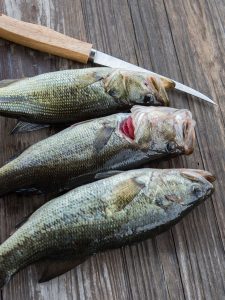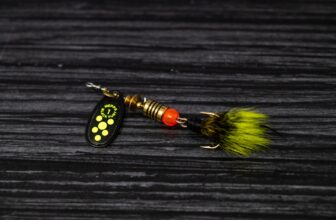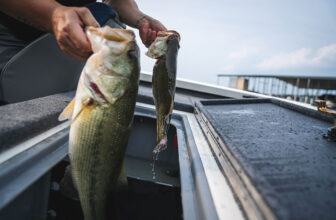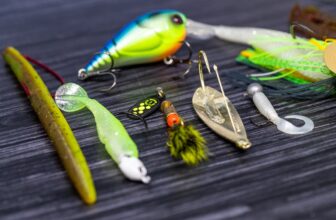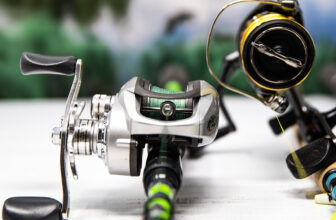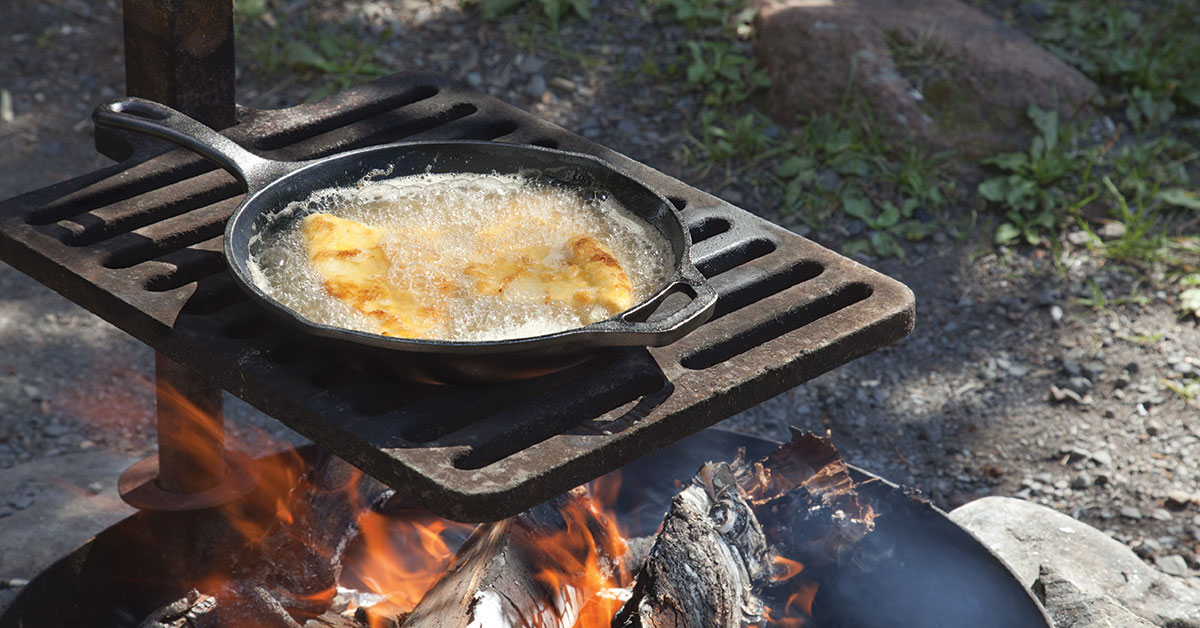
Many beginner fisherman have asked the age old question of can you can eat bass, and are bass good to eat. Whether or not you should is another questions, as anglers have long debated on whether or not you should eat your largemouth catch and considering that they are the most popular game fish in the United States, it’s no surprise.
Can You Eat Bass?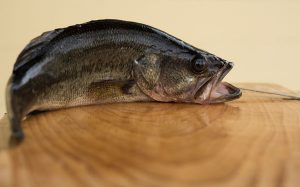
I’ve been fishing my entire life but it wasn’t until I was 15 or so that I first heard about the supposed near immorality of keeping your largemouth catch for food. We always kept them growing up (assuming they were just at or above the legal size,) and so I was a bit surprised when I saw how offended some people became when I would suggest keeping them.
I was immediately understanding as to why people chose not to keep their catch, and even I don’t most of the time. But at the end of the day, it is legal to keep largemouth bass in most states from public waters, and in many private fisheries you’re even required to for smaller sizes, so you should have no moral qualms about keeping them every now and then. There are some general guidelines when it comes to keeping and cooking largemouth though – keep reading to find out what they are and why you should follow them.
Should You Keep Largemouth Bass?
The issue most people have with others keeping their catch of largemouth is that they look at them strictly as a sport fish. Due to this outlook, there are some written and unwritten rules to protect both the interests of this type of angler and the overall health of a given ecosystem.
Only Keep the Small Ones
It can take a largemouth bass over a decade to grow to a truly respectable 8+ lb. size, depending on where you’re located. This is one of the reasons it is suggested that you release any largemouth bass that is above average in size. By doing this you keep the thrill of the sport alive and allow future anglers to catch the same fish down the road when it’s even bigger.
If you feel like keeping a whopper you caught for mounting purposes I get it, but I still can’t recommend it. Taxidermists today are very talented, and as long as you take pictures and proper measurements of your personal bests, they can create a life-like model that lasts even longer than traditional mounts.
Big bass like this are generally female bass that heavily influence the reproduction and overall local ecosystem, so by removing them you could potentially interrupt the established system.
When Can You Keep Largemouth Bass?
Regulations differ by state and even lakes in most instances so it is important to check local regulations before keeping any fish, not just largemouth. Local regulations will limit you on the amount of black bass, (includes largemouth) you can keep, and what the minimum length is.
Minimum length is generally set at 12-15 inches – the closer to the minimum the better because these small largemouths tend to have a better taste. These limits are heavily monitored and set with the best interest of the water in mind. You should never feel bad for harvesting fish that you are within your legal right to harvest.
This is especially true when dealing with a body of water that has too many largemouths in it which will eventually have adverse effects on the underwater ecosystem as a whole. If your local limit of black bass is set high then that means that there are too many of them and that the population needs thinning out. If this is the case you should still mind the sporting aspect and throw any monster bass back for future anglers.
Are Largemouth Bass Good to Eat?
Remember how I told you to only keep the smaller largemouth? Well, this is for more reasons than sport fishing and the health of local water alone – and while these reasons should be more than enough to convince you, bigger largemouth bass doesn’t even taste that good.
As with almost any other kind of animal the young largemouth taste better than the bigger ones. This has to do with the bigger fish being exposed to and picking up more toxins over their longer life. In addition to this their meat becomes tougher overtime, besides, smaller fish fillets are more tender and easier to cook too.
That being said, smaller largemouth bass does taste good in my opinion. Now don’t get me wrong, they’re no crappie or trout, but they serve well for frying over a fire on a camping trip. The largemouth bass is a super white and flaky fish which is what most people prefer when eating fish anyway.
If you’ve never eaten your catch of largemouth I recommend giving it a shot – if you don’t like it you never have to do it again. If you do plan to try it out read on for the easiest ways to fillet and cook a largemouth bass.
How to Fillet a Largemouth Bass
The first step in cleaning your catch is to make sure you have the proper equipment at the ready.
- Fillet Knife
- Cutting Board
- Ziploc Bags
- Running Water
Everybody has their way of filleting a fish and you will develop your own intricacies over time – but for the sake of those that have no idea, I am going to go over my method. Before I begin I feel like I need to stress the importance of using a sharp fillet knife – this makes the job so much easier, and contrary to popular belief, a sharp knife is significantly safer.
- Cut just behind the gill line perpendicular to the lateral line of the fish. Cut through until your knife is just before the spine of the fish.
- Once you locate the spine cut a shallow cut along the length of the bass using the spine as a guide. When you near the tail cut all the way through and continue the cut making sure to leave the fillet attached at the end.
- Continue to go over the cut, freeing the fillet a little more with each pass until it’s only attached at the end of the tail.
- Flip the fillet over so its skin side down but still attached at the tail. Cut through the meat at the start of the fillet until you reach the skin – make sure not to cut through the skin. If your knife is sharpened properly you should be able to just drag the blade of your knife along the skin to free the entire fillet.
- Once the fillet is cut from the fish you should cut out any dark spots and feel for, and remove any bones.
- Repeat for the other side and any remaining fish. I like to rinse my fillets when I’m done and let them soak overnight to remove any additional blood in the meat. Change the water out if it starts to get dark for the cleanest and best tasting largemouth possible.
- If you plan on saving the fish for a later date, place the fillets in a Ziploc bag for freezing.
I must let it be known that the last two steps are not necessary. If you’re camping you might not have the luxury of letting your fish soak overnight. It’s completely safe to eat bass after a quick rinse.
How to Cook Largemouth Bass
Like any other fish, there are an endless amount of ways to prepare largemouth for eating and they all have the potential to taste good. From campfire and cast iron to industrial gas stove-top, you’ll find that bass can be a delicious option for a flaky white fish.
- Grill
- Bake
- Pan-fry
- Deep fry
One of the simplest ways to prepare largemouth, and one of my favorites, is to season the fillets with salt, pepper, and some cajun seasoning. Once the fillet is seasoned I melt some butter down in the pan and lay the fillets down for a couple of minutes on each side. This method is especially handy in the outdoors when means are scarce. Another important thing to remember is that cooking time may differ depending on the size of the fillet.
How you season your fish is going to greatly alter the end taste but is ultimately up to you. Whitefish is pretty hard to mess up and is likely going to taste good no matter what you do to it.
Should you eat Largemouth Bass?
It really all boils down to if you like the taste of fish or not. You should never feel bad about eating largemouth though, despite what other people may tell you. As long as you are following the local laws and not keeping anything under the size limit then there is nothing to feel bad about.
Largemouth bass is easy to clean and prepare and can make a great dish for any style of meal. From grilling whole-bass to pan-frying some fillets, you can count on a tasty and nutritious meal every time.
I recommend that everybody try largemouth at least once for the simple fact that it gives you a new appreciation for the fish. If you don’t enjoy it then there’s nothing wrong with exclusively being a catch-and-release bass angler moving forward – but at least you can say you’ve tried it.

